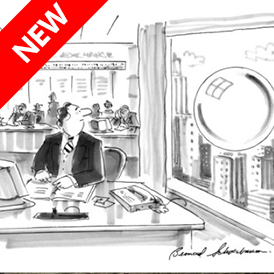
Bubble watch #7
As you may know by now, we do not believe there is a bubble in stocks or property. We do believe one will form before the next correction. Type ‘bubble’ into the search bar or click here to read our recent observations.
In mid-March, we noted that the co-founder of GMO, Jeremy Grantham, one of the world’s largest money managers was interviewed by Barron’s. “There are two good standards for a bubble… one is boring statistics, and the other is an exciting behavioral frenzy, on which so many good books have been written. And based on the boring statistics, the data is really very clear: We are not even that close to a bubble… Using the standard definition, it has to go up another 30% from here to get to a bubble. But you don’t know when an ordinary market move is a bubble; you only know that in hindsight.”
And the second “euphoria” test?
“I like to joke that in 2000 here in Boston, Celtics replays were displaced at lunchtime at the greasy spoons [a diner that serves mostly fried food] by talking heads on TV… You would go to one, and they would be touting the latest Internet stock. But I’ve noticed recently that they are still playing the sports highlights on the televisions in the pubs here.”
It seems Grantham’s thoughts are gaining traction, and last week Fortune magazine became the latest to interview the CEO. See below for our edited excerpt of the transcript.
Fortune: Okay, but then I guess that means you think stocks are going higher? I thought I had read your prediction that the market would disappoint investors.
Grantham: We do think the market is going to go higher because the Fed hasn’t ended its game, and it won’t stop playing until we are in old-fashioned bubble territory and it bursts, which usually happens at two standard deviations from the market’s mean. That would take us to 2,350 on the S&P 500, or roughly 25% from where we are now.
Fortune: So are you putting your client’s money into the market?
Grantham: No. You asked me where the market is headed from here. But to invest our clients’ money on the basis of speculation being driven by the Fed’s misguided policies doesn’t seem like the best thing to do with our clients’ money. We invest our clients’ money based on our seven-year prediction. And over the next seven years, we think the market will have negative returns. The next bust will be unlike any other, because the Fed and other central banks around the world have taken on all this leverage that was out there and put it on their balance sheets. We have never had this before. Assets are overpriced generally. They will be cheap again. That’s how we will pay for this. It’s going to be very painful for investors.
Read the entire transcript here.
Hi Roger, thanks for this discussion. Here’s a chart for thought. Kelvin
http://blogs.telegraph.co.uk/finance/files/2014/04/saxo-margin.png
That seems to fit too. We pass through a year or two of further (possibly solid) gains before it all turns negative…
I agree, it is time to be on the look out for a bear market. By the third quarter of 2014 we will be in a liquidity squeeze as far as USD denominated financial instruments are concerned. At the moment the US government doesn’t need to borrow in excess of the what the Fed is creating. This is because of winding down of Military expenditure and April tax receipts rolling in. However, by the third quarter the military expenditures might start going up again, due to build up of NATO forces around Russia, plus the Fed tapering would gather a pace. The US government would be sucking in all the excess liquidity and more out of the system. I believe the start of the bear market will coincide with a seasonal sell off. I would start taking money off the table at the earliest of either ASX 200 reaching new highs, or before Friday 2nd of May. The 5th of May marks the start of week 19, which taken together with week 20 and week 21 form a cluster of seasonally negative performance for ASX200. There is only one thing that can stop the bear market in its tracks. The Fed in my opinion will announce the stop to tapering some time in the second half of the year. That will have created the greatest buying opportunity during this coming sell of.
We’ll be watching now with very great interest Michael.
BUBBLE
I love CRZ,
CRZ loves ICQ,
I love ICQ,
We are happy family.
Bubble? Not too far now.
Cheers
the world is full of “gurus” who claim success for 1 or 2 successful predictions but get many others wrong. “negative returns over the next 7 years”….what baloney ! and how can anyone have a crystal ball good enough to know what will be happening in the world in the next 7 years.
They have a model that spits out an IRR and its been pretty helpful in the past.
Does this mean there is a place for gold in a portfolio?
I think low growth is here to stay in most economies because of the ageing
populations and the scare they got with the GFC. In about 18 months it
will be very hard to invest in shares and real estate. Perhaps cash will be
king again.
Indeed.